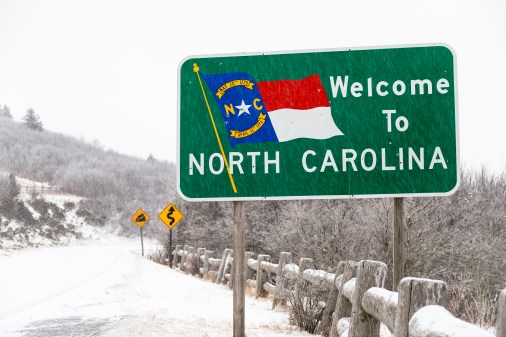Virginia prepares opioid data-sharing and analysis platform

Virginia has awarded Qlarion, a data and analytics firm that specializes in government innovation, a contract to create a data-sharing and analysis platform to help manage the state’s growing opioid addiction trend.
Announced by the company and the Virginia Department of Criminal Justice Services last month, the platform will allow partnering organizations in Virginia access to shared data relating to the opioid crisis for scientific and research purposes. The shared information is hoped to generate improved evidence-based decision making across the state. The announcement comes as communities around the country struggle with a heightened drug addiction trend — according to the National Institute on Drug Abuse, more than 155 people die in the U.S. of opioid overdoses every day.
Qlarion CEO Jake Bittner told StateScoop that the new project builds on an old relationship with the state. Three years ago, the Virginia Information Technology Agency, the state’s central IT office, awarded Qlarion with a contract to provide the state with “next generation” analytics. This new contract extends that commitment.
“From a data-sharing perspective, the goal is to find technical solutions to allow the agencies of the commonwealth to bring their data to a common place and common format, so different organizations can look at the data through their own lens,” Bittner said.
Next, Bittner explained that the platform will allow non-technical users to build analytic reports that allow them to answer specific questions related to the data — with the ultimate goal of reducing opioid-related deaths.
Data collected by the Virginia Department of Health shows that 1,268 people died of opioid overdoses in Virginia in 2016.
The platform, which will attempt to arm state personnel with information to reduce that figure, will focus on identifying specific regions and populations that are at risk, Bittner said. The northern Shenandoah Valley will be the first region to use the platform.
Another major challenge for the state, he said, will be creating and scaling plans that make use of the data as it comes in, all while navigating the government bureaucracy.
“There are a lot of policies and laws involved in figuring out how to get everyone to understand the value of information sharing and be able to participate in this platform in a way they are comfortable with,” Bittner said.
The tool is one of many being used by state governments across the country to monitor prescription drug records, track deaths and hospital admittance for opioid-related incidents, and otherwise understand the challenge at hand. Virginia has started several efforts to get its arms around the issue, including an opioid-themed data competition and an opioid task force.
The Qlarion contract that builds on those efforts got its start through a unique procurement channel led by VITA called the Innovation Program, or VIP, that allows companies to share their ideas with the state’s technology leaders.
The contract was ultimately funded through the Technology Innovation for Public Safety grant from the U.S. Justice Department.
By the end of October, the company plans to have the first capabilities deployed in the field so leaders can begin making data-driven decisions. Bittner said as the state sees results, he believes more local agencies around the country will begin feeling comfortable making similar investments to address one of the country’s most difficult challenges.





